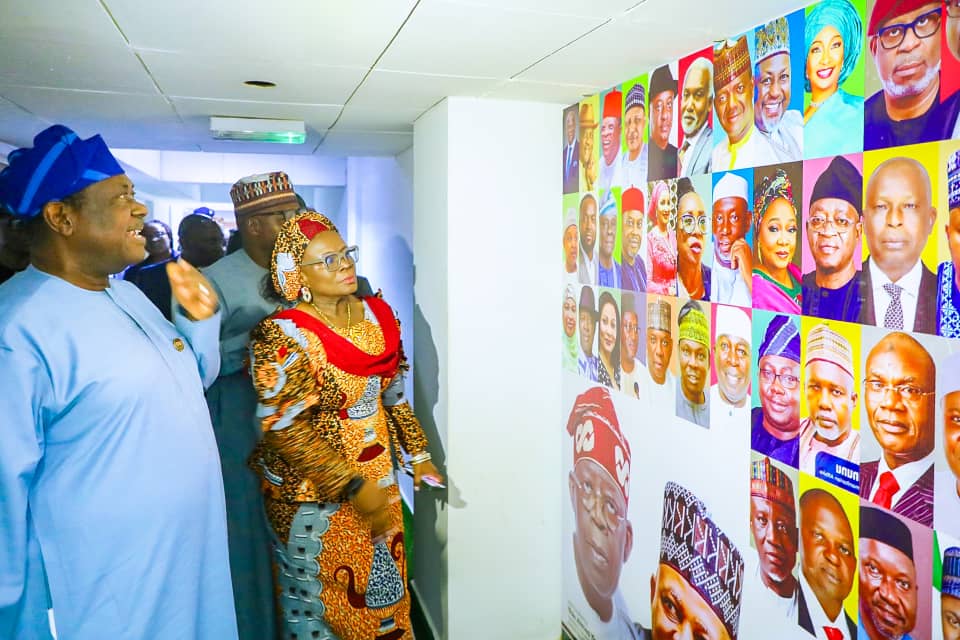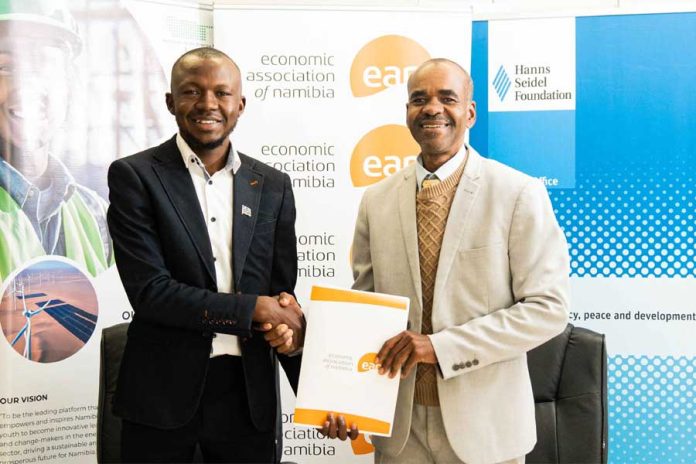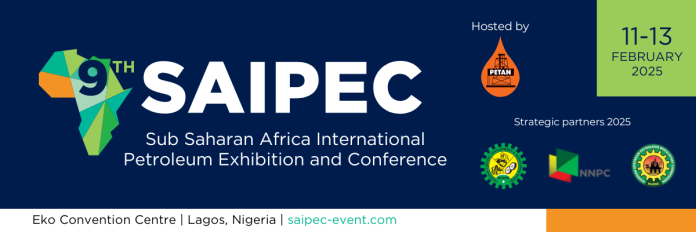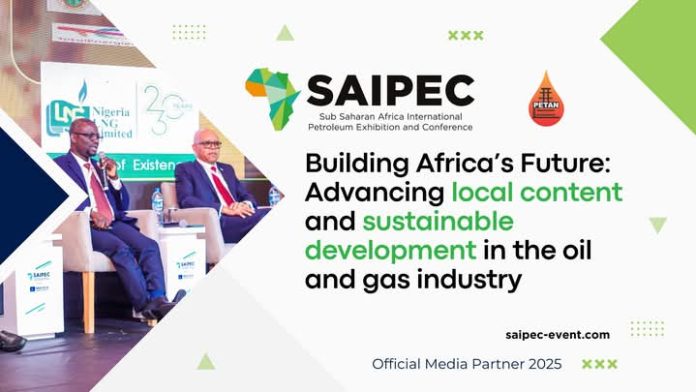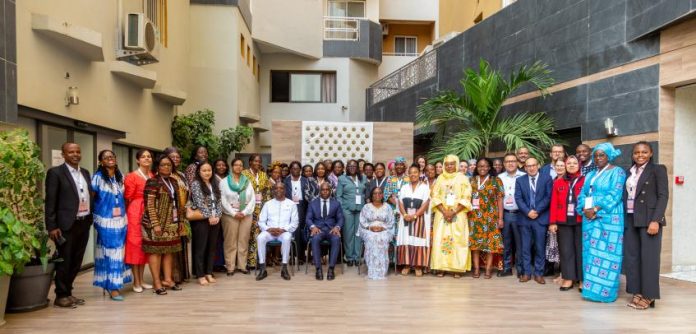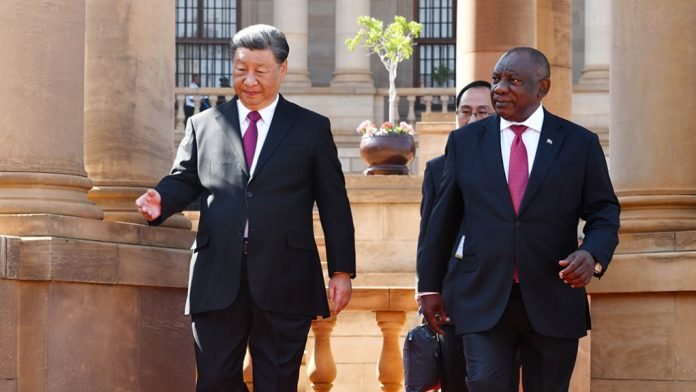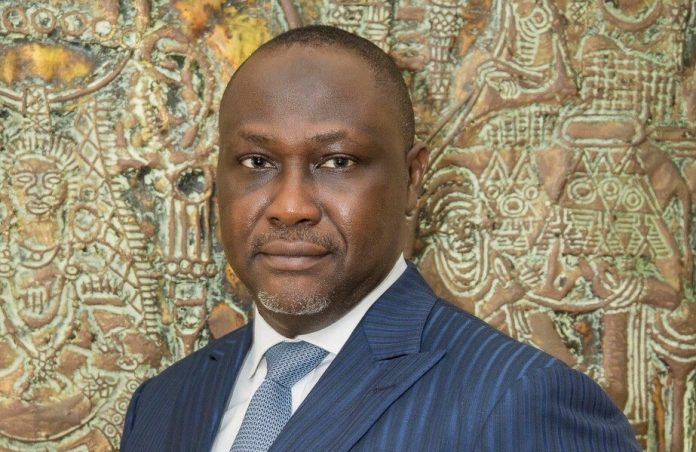HON. MOHAMMED IDRIS
Minister of Information and National Orientation (FMINO)
Nigeria@65 Compendium Studio (OSGF)
ADIPEC 2025: Expertise Converges with Enterprise, Geography and Possibilities
At ADIPEC 2025, there is the surefire hope that new paths shall be charted, innovations born, and consequential solutions found. CherryAfrica reports
It for sure will not be the only event in Abu Dhabi on the day. But the bubbles and sparks from it will certainly overshadow every other, considering the history, allure, magnitude, cast, magnetic thrusts, and headliners. From Monday, November 3 to Thursday, November 6, 2025 the sweet commotion on the attractive bosom of the United Arab Emirates (UAE), shall be harmlessly seismic. It is the 2025 edition of the historic Abu Dhabi International Petroleum Exhibition Conference (ADIPEC).
Held under the royal courtesy and patronage of Sheikh Mohamed bin Zayed Al Nahyan, President of United Arab Emirates, this year’s event has a tantalizing creative theme: “Energy. Intelligence. Impact.” Safe to say that the synopsis or integrated objectives of the event are artfully buried in the epigraphic theme. The cardinal aim is to strengthen today’s energy systems through intelligent collaboration and solutions that propel global progress; analysing and developing energy transition strategies in conspiracy with cutting-edge technology, and more. The host of the event is the Abu Dhabi National Oil Company (ADNOC).
It all began 41 years ago in 1984 with an incipient and atomistic regional oil and gas conference at the Abu Dhabi Intercontinental Hotel. But, typical of everything and anything about the ever inventive UAE, the promising little flower with beautiful petals rapidly blossomed in time and space to become a loadstar, benchmark, global bride of many suitors, and one of the world’s largest events of enviable renown.
Today, ADIPEC is a global hub where human and artificial intelligence indulge in technological romance, redefining energy systems pari passu with emerging trends, tech innovations, policy developments, and practical and practicable solutions that shape the present and future. ADIPEC spares nothing and means everything that has to do with expertise, enterprise, experiments, pragmatism, and altruism. For four decades, it has held the ace as a competitive one-spot exhibition mall for professionalism, commerce, cultures, and fantastic ideas.
2025 will not be different. This year’s ADIPEC is scheduled to be held at the prestigious ADNEC Centre, Abu Dhabi. An ear of the programme on the internet indicates that the official opening formalities shall hold precisely on Monday, November 3, at 9am at the ICC Hall, within which space shall also be held a technical session primed to begin at 10 am same day. The glass doors shall be shut at 1700 on Thursday, November 6, after four days of brainstorming and breathtaking sightseeing and exhibition.
Participants will be sourced and gathered from the four corners of the earth, cutting across demography, gender, vocations, and institutions, in their peculiar perspectives on issues on the table. They include National Oil Companies (NOCs), International Oil Companies (IOCs), government proxies, energy professionals, sustainability experts, and tech innovators. On the train also will be maritime and logistics gurus, investment and finance executives, academics, research institutions, exhibition companies, etc.
With 205, 000 attendees from more than 160 countries to be allowed space for lectures, conferences and exhibitions in 17 different halls, ADIPEC 2025 is perhaps the largest single event of its kind at a time anywhere in the world. It provides opportunities for networking, showcasing of new products, technologies, and services, covering diverse aspects of the petroleum and gas industry, viz-a-viz exploration and production to refining, petrochemicals, transportation, design, and much more.
As ADIPEC once again assembles the world in 2025, comprising global Think Tank, game -changers, policy-catalysts, innovators, enthusiasts and vibrant prospects at a roundtable of fresh ideas and knowledge-transfer, Cherry Africa greatly cherishes the moment, partnership and propitious opportunity and therefore holds out, as a token a toast, a bouquet of aromatic flowers to this consequential vision. There can be no doubt that at the end of the international meet, fresh ideas shall be born, the horizon made brighter, new frontiers opened, and the entire world of energy business honed for greater yield for common good. The ecstasy is overwhelming as we draw contagious inspiration from this year’s theme and look forward to innovative possibilities and more rewarding partnerships.
CherryAfrica sees ADIPEC as a profound manifestation of dreams into reality; a potent idea sown with clairvoyance and faith into a fine soil of time. This evolution reminds us of Victor Hugo, the French Warlord’s timeless proposition that, “not even the strongest battalion in the world can defeat an idea whose time has come.” Conversely, looking critically at the elasticity of fortunes in the energy and allied sectors today and need for effective and efficient framework, there is arguably a global consensus that the conception and concept of ADIPEC was a divine interventionist model delivered through mortals of like minds that could not have come at a better time than it did.
That was 41 years ago. It otherwise implies that ADIPEC is a Special Project Vehicle, a transformational instrument to spark and drive universal growth, accelerate multi-pronged development in the global market space, impact individuals’ and communities through safer practices, productive service delivery, and ultimate service satisfaction that engenders more cohesion through cross-pollinated initiatives of global reckon and effect.
This year’s theme therefore is not only timely but instructive, inviting, and prognostic as it points to the essence of vision, value, and breakthroughs. Imagine a world without energy, intelligence, and impact. Or think of finding solutions without a common purpose shared among experts and globally exposed analysts with cognate grasp of goings-on in critical domains, a world without a vociferous voice like ADIPEC with a template of relentless advocacy and innovation geared towards growth. At ADIPEC is a fusion and diffusion of altruistic ideas, well-coordinated activities, and humane goals and targets! Exponentially, it is to aver that a world without energy is a colossal void, devoid of humanity, development and growth.
Ideologically, ADIPEC plays the combined and selfless roles of a catalyst, searchlight, monitor, instructor, pathfinder, guardian, and regulator who does not force rules but enforces diplomacy, expertise, voluntary adherence to operational principles, and unwavering commitment to best practices for utilitarian effect. Yet must it be reiterated that none of these could be achieved without applied intelligence that galvanizes approaches to innovations for propitious and authentic end-result.
As ADIPEC is felicitated for the vision, resourcefulness, unfolding successes and resilience amid foreseen and unforeseen distortions and chaos in the market place, it is even more generously commended for having discreetly introduced and triumphantly enthroned the philosophy of Comparative Advantage in its capacity and generosity to bring together rich and poor players, big and small nations with common resources to the open table of intellectual communion and showcasing of comparable and competitive competences, innovations, and creations. That easily explains why at ADIPEC, real and imaginary bridges are built across distant lands and disparate minds. The ultimate objective is to impact positively on national, regional and global economies, cultures, perspectives, and the spectrum of diverse opinions.
While we relish in retrospect the trajectory of focus and unbroken strings of successes ADIPEC has recorded over the years, it would however be recalled that at its 40th edition held between November 4 and 7, 2024, like the penultimate that fell between October 2 and 5, 2023, big resolutions were reached. The one-shot question now must be “how far?” Creating an interlude at the current event to compare notes with a view to measuring the level of compliance or attention given to earlier communiques might be an expedient timeout. For the world knows that at the front burner of recurrent pressing issues in the global economy are slowing growth due to geopolitical tensions and policy summersaults; persistent inflation and high interest rates, OPEC’s autonomy and monopoly, and rising debt burdens in Third World or low-income countries, climate change, technological disparity, the Dutch Disease, decarbonization, AI’s curious incursions onto the status quo, shifts in global energy chain and distribution, and others. It will be an irony of purpose and crime against set targets if the past is forgotten or overlapped in a frantic fad for opportunities and gains of the future.
For a fact, ADIPEC deserves a thousand pats on the back. Of course, in the global discourse of distinctions, Dubai had since become the international nursery of workable formulas; incubator of fantastic ideas; and hatcher of unimaginable possibilities. This inimitable symbolism defines UAE, where beautiful flowers grow out of rocks and skyscrapers creep out of sand dunes, yet no storm was too strong to storm them down. Like Abu Dhabi, ADIPEC remains a global cynosure!
FG, CherryAfrica Unveil Nigeria @65 Compendium to Chronicle National Milestones
The Federal Government has inaugurated the Inter-Ministerial Committee (IMC) for the 2025 Independence Day Celebration vested with the mandate of planning, organising and executing all approved programmes to commemorate Nigeria’s 65th Independence Anniversary.
Speaking at the inauguration in Abuja, the Secretary to the Government of the Federation (SGF), Sen. George Akume, CON during the inauguration emphasised on the importance of unity, and patriotism in celebrating the victories and milestones Nigeria has attained.
Director Information to the SGF, Segun Imohiosen in a statement wrote: ‘‘This anniversary is a reminder of where we are coming from and where we are going from here. As a nation, we have faced challenges in areas such as political, economic and social issues but have overcome them. An anniversary is not just a celebration of the past. It is a call for action for the future. We must therefore commit ourselves to build a nation where every citizen feels valued and empowered to contribute his quota to the goals and aspirations of the country’’.
The 65th Independence Anniversary celebration will commence with the World Press Conference on Thursday, 25th September 2025 with the following line-up of activities to mark the national event: Juma’at Service on Friday, 26th September, 2025; Women Activities on Friday 26th September, 2025; Youth Activities and Historical Arts Exhibition on Saturday 27th September, 2025; Church Service on Sunday, 28th September 2025; Public Lecture on Monday, 29th September 2025; while the Presidential Broadcast and 65th Independence Day Parade will hold on Wednesday, 1st October 2025.
As part of the project to mark the independence anniversary, the SGF has unveiled the Nigeria @65 Compendium Project workstation, initiated by CherryAfrica Magazine in collaboration with the Office, designed with a state-of-the-art studio for interview-Tv Series with the top Government functionaries at all levels on their respective milestones in nation building, in line with the Renewed Hope Agenda. The interview session kick-started with the SGF’s interview, where he urged Nigerians to celebrate the nation’s achievements for the past 65 years and to also repose confidence in their leaders.
The national compendium would serve as a comprehensive repository of information on the nation’s milestones and development trajectory cutting across the pre-colonial, colonial and the post-colonial Nigeria with emphasis on the MDAs, the economy, the three tiers of Government, the Renewed Hope Agenda and other key sectors of the economy.
Namibia Oil and Gas Conference 2025
Namibia Oil and Gas Conference 2025 Announces Future Generations Masterclass in Partnership with the Namibia Youth Energy Forum
Empowering the Next Generation of Namibia’s Oil and Gas Leaders
The 3rd Namibia Oil and Gas Conference (NOGC 2025) has announced the launch of the Future Generations Masterclass, a new half-day programme dedicated to inspiring, empowering and preparing Namibia’s future oil and gas professionals. Delivered in partnership with the Namibia Youth Energy Forum, this initiative forms a key part of the conference’s wider mission to create inclusive and sustainable pathways for growth in the country’s emerging energy sector.
The Future Generations Masterclass will offer students, graduates and young professionals a unique platform to explore career opportunities in Namibia’s nascent oil and gas industry, engage directly with seasoned energy leaders and develop the critical leadership and technical skills necessary for success in the sector.
As Namibia’s energy sector transforms, driven by significant offshore discoveries, technological advancement and the global energy transition, the development of skilled local talent has never been more vital. The Future Generations Masterclass will provide attendees with practical tools and insights to navigate this evolving landscape and build fulfilling careers.
Programme Highlights:
Session One: Fostering Leadership and Career Growth for Young Professionals in Africa’s Oil and Gas Sector – Pathways to Success
This session will address key strategies for leadership development, technical training and structured career progression to equip young Namibians for the challenges and opportunities of the oil and gas industry.
Key Discussion Topics:
• Supporting leadership development and career growth for young professionals
• Understanding evolving career trends and emerging opportunities in the energy sector
• Building essential skills through mentorship, training and structured development programmes
• Navigating challenges such as market volatility, sustainability demands, and digitalisation
Session Two: Mentoring and Inspirational Talks
In this engaging session, experienced professionals from Namibia’s oil, gas, and broader energy industries will share personal career journeys, lessons learned and practical advice, providing aspiring professionals with invaluable real-world perspectives on how to succeed and thrive in the energy sector.
Speaking ahead of the event; Jason Kasuto, Chairperson, Economic Association of Namibia (EAN), host of the Namibia Oil and Gas Conference explained; “Our goal is to foster a vibrant ecosystem where young Namibians can see themselves as future leaders of the energy industry. Partnering with the Namibia Youth Energy Forum ensures we are not only inspiring the next generation but equipping them with the right skills and networks to contribute meaningfully to Namibia’s energy future.”
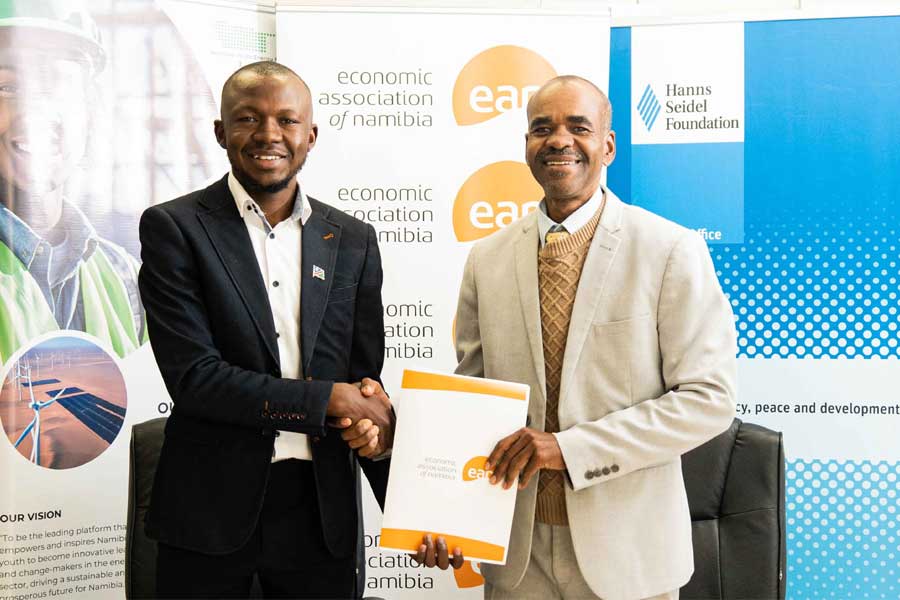
Fanuel Shinedima, Founder, Namibia Youth Energy Forum also explained; “This partnership is more than symbolic — it’s a strategic investment in Namibia’s energy future. Together, we are unlocking doors for young Namibians to lead, innovate, and thrive. The Future Generations Masterclass is a launchpad for bold ideas and bold leadership. We are not just preparing talent — we are shaping trailblazers. The Namibia Youth Energy Forum is proud to co-create this legacy.”
The 3rd Namibia Oil and Gas Conference themed “From Exploration to Action – Positioning Namibia as the Next Energy Frontier,” runs from 12–15 August in Windhoek. With Namibia emerging as a rising force in Africa’s energy landscape, the event is set to attract global industry leaders, investors, innovators and policymakers, as it offers exceptional opportunities for knowledge sharing, networking and skills development.
Hosted by the Economic Association of Namibia (EAN) in partnership with the Namibia Investment Promotion and Development Board (NIPDB) and the Hanns Seidel Foundation (HSF), with a strategic partnership with the National Petroleum Corporation of Namibia (NAMCOR), Rhino Resources and SNC Incorporated. The conference is also officially endorsed by Namibia’s Ministry of Industries, Mines and Energy.
This year’s edition has expanded significantly, doubling its exhibition space to meet rising demand for showcasing new technologies and services. Attendees will also benefit from a broader networking programme that fosters collaboration and sustainable growth across the sectors.
For full conference details and how to attend, CLICK HERE.
Dunamis: 28 Years of Reconciling Mankind to God
The choice of the Glory Dome of Dunamis Church as venue for the 40th Anniversary of the Pentecostal Fellowship of Nigeria (PFN) is as significant as it is symbolic for many reasons. In lieu of that event, CherryAfrica detailed and dispatched its correspondent, Substance Udo-Nature, to dig into the archives and, in a special way, retell the story of the genesis and evolution of the Dunamis International Gospel Centre under the distinctive superintendency of Pastors Doctors Paul and Becky Enenche. It is a special report in honour of these pathfinders, to mark the event.
DUNAMIS! This is a common word, a familiar one to say. It is a household name not just in Nigeria but on the global landscape of Christendom. No doubt. You can see the word pasted on car windscreens and windows, office desks, malls, people’s houses, schools, and elsewhere. Others simply choose to proudly hang the batch down their neck as an unmistakable identity, symbol of faith, with excited sense of belonging in a special household. But behind the popularity of the name and the celebrated personality behind it, how many may have been curious enough to dig beyond the skin of this shared familiarity to knowing not just the meaning, but the ancestry of this word, its etymology, in relation to Dunamis Church?
Not many perhaps. Many are simply satisfied with the momentum and the constant spiritual nutrition they always derive from Dunamis. It has not only attracted millions but has also magnated zealous, salvation-seeking multitudes to the Supreme source of life and His son, Jesus Christ, the anointed redeemer of mankind. Beyond the prominence of the name Dunamis – and the Church – CherryAfrica sought to know more about the word. Archives were opened with innocent curiosity.
The resultant findings were as interesting as they were enlightening, revealing more with regard to its root meaning; the catalyst it has played on the faith of members; and the man behind the vision and mission thereof. Dunamis is the Greek word for power. It is
therefore neither surprising nor a coincidence, that Pastor Paul Enenche, the founder of Dunamis International Gospel Centre, Abuja, chose to be associated with that name. It apparently must have been a deliberate choice with strong spiritual symbolism and corporate identity. Otherwise, DUNAMIS is associated with the moniker, The Lord’s Garden, known for powerful ministration, celebrated for spiritual deliverance and uplift.
The beautiful story of Dunamis International Gospel Centre, by and large, is a metaphorical manifestation of the proverbial Mustard Seed – tinniest of all the seeds man ever knew – yet growing with progressive rapidity into a Baobab, with broad branches, resplendent
all-weather leaves, providing shade to all and sundry. It is a profound story that inspires and teaches. At the epicentre of Dunamis is the unfolding evidence of vision, iron faith in small beginnings, commitment, self-sacrifi ce, humility, belief in possibilities, resoluteness in the storms of challenges, and rare ability to know the opportunity cost on the scale of preference.
Therefore, the year 1996 must be written in bold or with special characters on the calendar of Dunamis Church. Conversely, 1996 is a watershed, a turning point, in the narration of the conception and developing expansion of the idea. Again, it is to say, in effect, by spatial analogy of the growth of the church in contemporary Nigeria, that Dunamis arrived at the scene on a special cruise at a safer time when the bandwagon of unscrupulous church-setting merchants and megalomaniacs had not stampeded the stage, the way it is today. It’s approximately 29 years by today, and the impact is consistently growing. It all boils down to one man, Pastor Paul Enenche.
Born in 1968, Pastor Paul Enenche is of the Idoma tribe of Benue State. Related details of his background as obtained by our correspondent trace his inseparable attachment to God to the strict moral upbringing he benefited from his mother right from infancy as a Methodist. But the young Paul later joined the Deeper Life Campus Fellowship in his young d a y s at the University of Jos as a medical student. He stuck with the Deeper Life, flowered with it, and subsequently blossomed with stronger convictions that saw him
formed his own small group, intention of which we got to know, was to add value, deepen impact, and join in extending the borders of the gospel. According to one staunch member who spoke with our correspondent, DUNAMIS was set up “for the purpose of winning souls,
finding the lost sheep, and reconciling them back to God in the prophesied ingathering of the End Times”.
With incipient roots in the Methodist Church of his parents, and with firm adventurous roots in the Deeper Life Bible Church founded by Pastor Williams Folorunsho Kumuyi, Paul Enenche anchors his teachings on Christian Living, character, virtue and a life propelled by
holiness and positive impact on humanity. He also preaches prosperity as outward evidence of Gods commensurate reward for His devout worshippers.
Miracles are also part of his ministration. It implies that by spiritual lineage, Pastor Enenche is a son of many fathers whose DNA can never be questioned for the wrong reason. Count them: Bishop David Oyedepo (Living Faith Church, that’s Winners Chapel); Pastor Williams Kumuyi (Deeper Life); Pastor Kenneth Copeland (Eagle Mountain International); and Pastor Enoch Adeboye (Redeemed Christian Church). But the pastor would neither work nor succeed alone. Beside him, is Dr. Mrs. Becky Enenche, whom many have described as an
indefatigable partner in the success story of both Pastor Enenche and Dunamis. We learnt that Paul met Becky, a fellow medical student, on campus and both were sooner captured by inseverable love that led to a matrimonial union in 1994. They had shared spiritual dreams.
Two years later, Dunamis was born. And in the years that followed, the Enenches sired both biological and spiritual children. While the former are four, the number of the latter cannot firmly be exacted in a church that grows in heaps and bounds.
CherryAfrica was also told Paul among his contemporaries at the University of Jos, Plateau State, was an outstanding student and on that note, we can confidently say that had he on graduation chosen to pursue a career in medicine or scholarship as a whole, he certainly would have become one of the best in his country today. What we don’t know, and cannot risk to speculate, is if he would have been as happy and contented as he is today for having chosen to serve in the Lord’s Vineyard. His life’s sojourn therefore reflects Apostle Paul’s and easily reminds the reader of those inspirational words in Philippians 3:8, “What is more, I do indeed also consider all things to be loss on account of the excelling value of the knowledge of Christ Jesus my Lord.
For his sake, I have taken the loss of all things and I consider them as a lot of refuse, that I may gain Christ” (New World Translation of the Holy Scriptures). Is it any coincidence or divine inspiration that he was named Paul by his parents? Who knows!
Having chosen that divine path of invaluable returns, it is possible that Paul Enenche, again, must have whispered into the air the very words of prophet Isaiah in 6:8, ‘’Then I heard the voice of the Lord saying, ‘Whom shall I send? And who will go for us?’ And I said, ‘’here I am, Send me’’ (New International Version). Whatever. At that point, he knew he had crossed the Rubicon. Judged by where and who he is today, it would be preposterous to say that the young Paul did not know exactly what he was asking for or fully understood the implications or expectations of his acceptance of the call from the invisible God.
Looking back today at the bunch of “rubbish” he left behind, Pastor Enenche therefore has reasons for testimonies and thanksgiving. He is respectable change agent with nothing to be ashamed of. With his knowledge of medicine like the biblical Luke, he has surgically dissected, distilled, coalesced, and cross-bred the teachings of his influencers and mentors to develop a peculiar hybrid that has distinguished him as one of the most popular and influential clerics on the ecclesiastical protocol of the Pentecostal Fellowship of Nigeria, who anytime and anywhere can cause harmless earthquakes of spiritual soul-reawakening and dramatic deliverances. Whereas Pastor Enenche is not known to be spectacularly controversial, he is not gullibly conservative either. He bridges the gaps so expertly in a way that does not distract him from the mission. The Dunamis is dedicatedly involved in community services and social engagements – scholarships to the indigent; food to the hungry, succor to the hopeless and downtrodden; employment to the jobless; and capacity-building to those desirous of becoming teachers of the Word.
But Dunamis has a strategic mandate – to reconcile people back to God, to build faith, to revive; to give hope with the word of life – with tentacles spread across the globe. Like its founder, Dunamis is not known to be involved in ecclesiastical scandals, false and political prophecies, or fanatical approach to worship that are common nowadays. With soul-lifting songs of praise, intense exhortation, and worship on its routine meeting days especially on Sundays, Dunamis has a broad gateway to all comers. Liberal in attitude and beliefs, it is devoid of dogmas.
Announcing the event during the 21 days annual fasting and prayer program of the church, the senior pastor, Pastor Paul Enenche hinted that the Pentecostal Fellowship of Nigeria (PFN) will hold her 40th anniversary this February 2025 at the Glory Dome. Billed to grace
the event shall include Pastor Enenche’s spiritual mentors and benefactors – Bishop David Oyedepo; Williams Kumuyi; Enoch Adeboye; others will include Uma Ukpai; Daniel Olukoya; Ayo Oritsejafor; Margeret Idahosa and many others. It is not the caliber of persons at the planned event that is of paramount interest to us. No. It was rather the disclosure that the endorsed venue for the celebration shall be the Glory Dome, a cutting-edge and sophisticated auditorium built by the Enenches, which was dedicated in 2018. With a 100,000-seater capacity, CherryAfrica was reliably informed Dunamis headquarters is arguably the second largest church auditorium in Africa and the world.
Hosting the Ruby anniversary here shall potentially remind Pastor Enenche and wife, Becky, as well as the spiritual forebears of some turning points in Dunamis’ evolving narrative of growth and expansion approximately 29 years later.
READ THE FULL STORY IN OUR FEBURARY 2025 MAGAZINE EDITION ONLINE HERE
Ministerial Keynote Announced: A New Era for Nigeria
Hon. Heineken Lokpobiri, Minister of State for Petroleum Resources (Oil), Federal Republic of Nigeria, will deliver the Ministerial Keynote: Nigeria’s New Era at SAIPEC 2025, focusing on the nation’s transformative journey in the oil sector.
Alongside him, Ms. Olu Verheijn, Special Advisor to the Nigerian President on Energy, will present an address titled Invest in Nigeria and its Expertise, emphasising opportunities for investment and highlighting Nigeria’s role as a leader in the energy sector.
Hon. Lokpobiri and Ms. Verheijn will join over 80 distinguished speakers in a three-day programme full of strategic discussions, panel sessions, and dynamic engagements, designed to address Africa’s energy opportunities and challenges.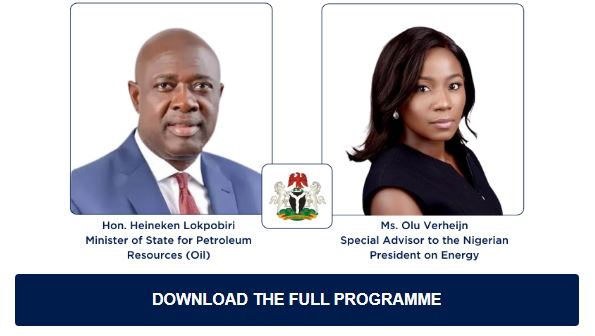
Also on the programme, International Gas Union Secretary General, Mr Menelaos Ydreos will speak about the fundamental importance of gas in all its forms and how it is critical to human progress as well as the importance of gas for Africa as part of the opening plenary session.
The SAIPEC programme will also explore Africa’s natural gas potential as a cornerstone of global energy security, delving into LNG and FLNG projects, market opportunities and investment dynamic
Speaking recently in an interview with SAIPEC’s Official Event Publication, The Energy Republic, Mr Ydreos explained; “SAIPEC 2025 is a very important event to advance the regional and not only, industry debate on the future of the fossil fuels in the global energy mix. Gas is fundamental to human progress and global growth, and is a feedstock to critical industries such as food, pharmaceuticals, agriculture, and many more. In addition, and particularly related to the stark energy poverty and scarcity across the African continent, Gas can serve as an immediately available, reliable, sustainable, and affordable energy poverty break, allowing hundreds of millions of people across the continent to have access to clean cooking, power, and clean air.”
Read the full interview on the Energy Republic website here
Don’t miss the opportunity to hear from industry visionaries and gain deeper insights into Africa’s energy future
As Africa’s premier energy platform, SAIPEC fosters collaboration across the value chain. Register today for your opportunity to connect with thought leaders and gain unparalleled insights into Africa’s energy landscape.
SAVE NOW WITH EARLY REGISTRATION
Free Visitor Registration Now Open
Registration is now open for the SAIPEC exhibition, offering free access to connect with industry experts and discover the latest innovations in energy as well as entry into the SAIPEC Technical sessions.
Attendees who complete the special stamp card challenge will be entered into a draw to win one of five brand-new tablets.
Discover more and register today via the button above
SAIPEC looks forward to welcoming delegates and exhibitors to what promises to be another impactful year for the energy sector.
ACTIVATE YOUR FREE VISITOR PASS
CONTACT US
PETAN MEMBERS
Kevin Nwanze, MNSE
Executive Secretary, PETAN
E: [email protected]
T: +234 705 999 2225
Disere Leghemo
E: [email protected]
T: +234 802 885 4788
GENERAL ENQUIRIES
Mohamed Ahmed
Event Director, GEP Africa
E: [email protected]
T: +20 1001797986
SALES / MARKETING ENQUIRIES
Osaze Isesele, GEP Africa Marketing
E: [email protected]
bvWITH THANKS TO OUR SPONSORS AND PARTNERS 2025
Countdown to SAIPEC 2025: Only 1 Month to Go!
The Sub-Saharan Africa International Petroleum Exhibition and Conference (SAIPEC) 2025 is almost here. Don’t miss your chance to be part of the region’s leading energy event, bringing industry leaders and innovators together to shape the future of energy in Africa.
💡 Here’s how you can join us:
✔️ Download the full programme to explore this year’s incredible lineup of speakers and sessions – https://saipec-event.com/programme
✔️ Register as a delegate before 17th Jan to take advantage of our special discounted rate – https://saipec-event.com/register
✔️ Exhibition visitors register for FREE to connect with exhibitors and industry professionals at no cost – https://saipec-event.com/visitor-registration
📅 When: 11th – 13th February 2025
📍 Where: Eko Convention Center, Lagos , Nigeria
🌟 Visit saipec-event.com now to secure your place! Let’s build the future of Africa’s energy sector together.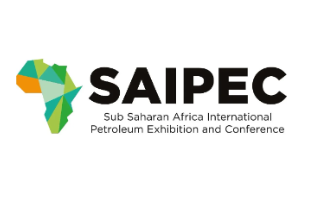
The African Union CIEFFA and UNESCO IIEP Convene Workshop to Validate Report on the Status of Girls and Women’s Education in Africa
A joint technical workshop as part of the process to validate the first Continental Report on the Status of Girls and Women’s Education in Africa opens in Dakar, Senegal, on December 02, 2024. It is convened by the African Union International Center for Girls and Women’s Education in Africa (African Union CIEFFA) and Gender at the Centre Initiative (GCI) of UNESCO’s International Institute for Educational Planning (IIEP). The meeting, which is scheduled to run till December 04, brings together over 40 African Union CIEFFA focal points and experts from the Ministries in charge of Education and ministries in charge of Gender and other major stakeholders in the fields of education and gender equality.
Over the 3-day gathering, participants from close to 30 AU Member States are expected to conduct a thorough cross-country analysis of the Report grounded in gender equity and inclusive development. The Report is a status analysis of the progress and lingering challenges in achieving gender equity in education, from Early Childhood Education (ECE) through to post-secondary levels. It presents the available education data from across AU Member States.
While opening the meeting, the Minister of Education for Senegal, H.E. Moustapha Mamba Guirassy underpinned that, “Education, and particularly girls’ education, is one of the most powerful levers for development. This development benefits not only the girls themselves but also their families, communities, and society as a whole.” He expressed Senegal’s interest in ensuring gender-responsiveness in education policies. “In Senegal, the education sector policy, outlined in the Programme for the Improvement of Quality, Equity, and Transparency in Education and Training (PAQUET-EF), planned for the 2018-2030 period, aims, among other things, to promote gender equality and the empowerment of girls and women. The issue of girls’ schooling, especially ensuring they remain in school, is at the heart of the implementation of this program”, he stated.
The workshop takes place within the framework of 2024 as the AU year of Education. It is equally one of the outputs of the first African Union Pan-African Conference for Girls’ Education (AU/PANCOGED1) hosted by the AUC ESTI Department in July 2024.
The Acting Coordinator of the African Union CIEFFA, Mrs. Simone Yankey, stressed the fact that “As we are getting close to the end of this year dedicated to Education by the African Union, our collective efforts to prioritising education for girls helps to break down barriers and contribute to creating a more just and prosperous world for everyone. Studies consistently show that educated women contribute significantly to economic growth, development from the micro to the macro level, and the overall well-being of societies.”
The Director of UNESCO Regional Office for West Africa, Mr. Dimitri Sanga, highlighted, “The report brought to us is an essential contribution to understanding the progress made, as well as the challenges that remain in achieving the 2030 Agenda. For instance, it reveals that fewer than one in four African Union member countries achieve gender parity at the preschool level, and no country achieves it in higher education. In other words, at every stage of education, girls lose educational opportunities. With six years remaining to meet the Sustainable Development Goals, the international community must intensify its efforts, as the target is still far from being met. To this end, gender equality in and through education is a crucial lever.”
The objectives of the gathering are, amongst others, to collect feedback from AU CIEFFA focal points to advance the validation of the report, enhance AU CIEFFA Member States’ commitment to prioritizing gender equity and inclusive development, explore country-level strategies and best practices to address gender inequities in education, their intersectionality and interactions, and build a platform for countries to share experiences, foster peer-to-peer learning and identify common solutions, and align efforts.
Other stakeholders attending the event include representatives from the UN offices in Senegal and the World Bank.
President Ramaphosa leads south Africa delegation to china state visit and the Forum on China – Africa Cooperation summit
At the invitation of His Excellency President Xi Jinping President Cyril Ramaphosa has undertaken a State Visit to the People’s Republic of China to also participate at the Forum on China – Africa Cooperation Summit (FOCAC).
The State Visit and FOCAC Summit commence in Beijing from 2 – 5 September 2024.
President Cyril Ramaphosa hosted President Xi Jinping on his fourth State Visit to South Africa in August 2023 in the City of Tshwane, cementing twenty-five years of strong bonds of friendship and cooperation the two countries enjoy since establishing formal diplomatic relations.
A statement issued by the Presidency of the Republic of South Africa says China is South Africa’s largest trading partner globally, while South Africa is China’s number one trading partner in Africa, adding that total bilateral trade grew from R614 billion in 2022 to R692 billion in 2023.
The statement says: “On Monday, 2 September 2024, President Ramaphosa’s State Visit to China officially commences with a welcome ceremony at the Great Hall of the People. Ahead of the bilateral engagement, President Ramaphosa will lay a wreath at the Monument to the Peoples Heroes in Tiananmen Square in honour of Chinese revolutionaries.
“South Africa and China’s bilateral relations are maintained at the level of a Comprehensive Strategic Partnership (CSP) level, underpinned by a Ten-Year Strategic Programme of Cooperation (2020 – 2029).
“South Africa and China will sign agreements that are aimed at enhancing economic cooperation and the implementation of technical cooperation, particularly in the fields of human settlements, agriculture and science and technology.”
It adds: “On Tuesday, 3 September 2024, President Ramaphosa will champion South Africa’s economic diplomacy with China by visiting Shenzhen, an economic technology hub in the Guangdong Province to interact with industry leaders and tour the headquarters of two tech companies as part of the bilateral business programme of the State Visit.
“The President will address the South Africa – China Business Forum on Wednesday, 4 September 2024, on the margins of the FOCAC in Beijing.
“On Thursday, 5, September 2024, President Ramaphosa, will participate in the FOCAC Summit held under the theme “Joining Hands to Advance Modernisation and Build a High-Level China-Africa Community with a Shared Future”.
The President is slated to co- chair, with the Chairman of the Chinese People’s Political Consultative Conference, Mr Wang Huning, the High-Level Panel Seminar on “Accompanying Africa in Industrialization, Agricultural Modernization and Green Development to Embark on the path to Modernization.”
South Africa ‘s participation in FOCAC is driven by a constant advancement of Africa’s position on development as outlined by the African Union’s Agenda 2063: The Africa we Want and its related Flagship Programmes.
A Declaration and Action Plan (2025-2027) will be issued as the outcome documents of the 2024 FOCAC Summit, the statement adds.
The Ministers of International Relations and Cooperation, Science, Technology and Innovation; Human Settlements; Small Business Development; Presidency; Trade Industry and Competition; Electricity and Energy; Public Works and Infrastructure; Higher Education; Agriculture accompanied the President to the China State Visit and FOCAC along Premiers of the Eastern Cape and Limpopo province as well as senior government officials.
AFC Supports Africa’s Largest Methanol Plant, Transforming Flared Gas into Valuable Resources
BY JEFF ADE
Lagos, 26 August 2024 – Africa Finance Corporation (AFC), the continent’s leading infrastructure solutions provider, is arranging a project development facility to support Africa’s largest gas-to-methanol plant, with the aim of significantly reducing CO2 emissions by offsetting flaring of natural gas and turning it instead into a valuable chemical for solvents, paints, plastics and car parts.
A statement by the Corporation made available to the media by Yewande Thorpe says the project in Akwa Ibom, Nigeria, targets producing an initial 1.8 million tonnes per annum (MTPA) of methanol, diversifying the local economy and generating more than 18,000 jobs. According to the statement, AFC has committed development stage financing to de-risk the project and enable it reach financial close, along with providing financial advisory services to the sponsors to raise the required project financing and support successful delivery of this transformational project. The venture is led by Blackrose, a project development and investment firm, and co-developed with the International Finance Corporation (IFC), the private sector arm of the World Bank Group, which are co-financing alongside AFC.
Most of Nigeria’s 200 cubic feet of natural gas reserves – the largest in Africa, accounting for a third of the continent’s total, AFC says, remain unexploited, presenting a substantial opportunity to bolster the country’s natural resource beneficiation and enhance climate resilience. The Corporation also noted that Gas flaring has been a significant hazard for local people since the beginning of oil production, emitting chemicals linked to respiratory and other health issues.
“This innovative project is transforming an immense negative for Nigerians into a very significant positive by harnessing this country’s abundant gas reserves as a unique opportunity to become a global leader in low-carbon manufacturing and energy systems,” said Samaila Zubairu, President and CEO of AFC, adding “This strategic collaboration with Blackrose and IFC underscores our dedication to supporting Africa’s pragmatic transition to net zero, emphasising rapid industrialisation, local job creation, and socio-economic advancement through the production of methanol, a versatile and low-carbon industrial feedstock.”
The project will be implemented in two phases, each with an installed capacity of 1.8 MTPA, according to the Corporation. Phase one is expected to produce low-carbon methanol, an industrial chemical essential to the manufacturing of hundreds of everyday products, including solvents for the pharmaceutical industry, paints, plastics, automobile parts and construction materials. This is also a lower emissions alternative fuel used in hard-to-decarbonise sectors such as shipping and industrial boilers, with applications for cooking stoves and fuel cell solutions. Phase two of the project, the statement says, will expand methanol production to include ammonia, a critical feedstock for fertiliser production.
Methanol is produced using synthetic gas predominantly from coal and natural gas. By utilising best-in-class energy efficient production methods, the plant will achieve a much lower net carbon intensity compared to traditional methanol synthesis techniques, while also reducing CO2 emissions by converting gas that would otherwise have been flared. In addition, the project incorporates plans for carbon capture and offset strategies as well as the use of external hydrogen to bring targets even closer to carbon neutrality.
Once operational, the gas-to-methanol plant is expected to generate more than 2,500 local jobs during the construction phase and a further 16,000 jobs indirectly by catalysing manufacturing activity and economic diversification.
AFC was established in 2007 to be the catalyst for pragmatic infrastructure and industrial investments across Africa. The Corporation’s approach combines specialist industry expertise with a focus on financial and technical advisory, project structuring, project development, and risk capital to address Africa’s infrastructure development needs and drive sustainable economic growth.
Seventeen years on, AFC has developed a track record as the partner of choice in Africa for investing and delivering on instrumental, high-quality infrastructure assets that provide essential services in the core infrastructure sectors of power, natural resources, heavy industry, transport, and telecommunications. AFC has 43-member countries and has invested US$13 billion across Africa since inception.






